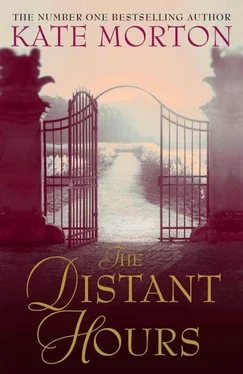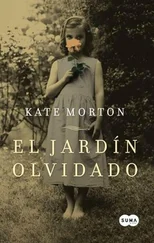‘Because he’d stolen Saffy’s nightmare,’ I said. Sin was taking it a bit far, perhaps, but I certainly understood how such a thing might impact upon a young girl, particularly one with a bent for the fantastic. ‘He sent it out into the world and gave it new life. He made it real.’
Percy laughed, a wry, metallic sound that made me shiver. ‘Oh, Miss Burchill, he did more than that. He inspired the dream. He just didn’t know that then.’
A growl of thunder rolled up the tower and the lamplight dulled; Percy Blythe, however, did not. She was possessed by her story’s purpose, and I leaned closer, desperate to know just what she meant, what Raymond Blythe could possibly have done to spark Saffy’s nightmare. Another cigarette was lit; her eyes shone, and perhaps she smelled my interest for she shifted the spotlight. ‘Mother kept her affair secret for the better part of a year.’
The change of subject was a physical blow and I deflated. Rather obviously, I’m afraid, for it did not escape my host’s attention. ‘Am I disappointing you, Miss Burchill?’ she snapped. ‘This is the story of the Mud Man ’s birth. It’s quite a scoop, you know. We all played our part in his creation, even Mother, though she was dead before dream was dreamed or book was writ.’ She brushed a trail of ash from the front of her blouse and picked up her story. ‘Mother’s affair carried on and Daddy had no idea. Until one night when he came home early from a trip to London. He’d had good news – a journal in America had published an article of his, to great acclaim – and he was of a mind to celebrate. It was late. Saffy and I, just four years old, had been put to bed hours before, and the lovers were in the library. Mother’s lady’s maid tried to stop Daddy, but he’d been drinking whisky all afternoon and he wouldn’t be calmed. He was jubilant, he wanted his wife to share in his good mood. He burst into the library, and there they were.’ Her mouth darted to form a grimace, for she knew what was coming. ‘Daddy was enraged and a terrible fight ensued. He and Sykes, then when the other man lay injured on the floor, he and Mother. Daddy berated her, called her names, and then he shook her, not hard enough to hurt but with sufficient force that she fell against the table. A lamp toppled to the ground and broke, the flames catching the hem of her dress.
‘The fire was immediate and fierce. It raced up the chiffon of her dress and within an instant she was engulfed. Daddy was horrified, of course, dragging her to the curtains, trying to smother the flames. It only made matters worse. The curtains caught, the whole room soon after; fire was everywhere. Daddy ran for help: he dragged Mother out of the library, saved her life – albeit briefly – but he didn’t go back for Sykes. He left him there to die. Love makes people do cruel things, Miss Burchill.
‘The library burned completely but when the authorities arrived, no other body was found. It was as if Oliver Sykes had never existed. Daddy supposed that the body had disintegrated under such intense heat, Mother’s maid never spoke of it again for fear of tarnishing her mistress’s good name, and no one came looking for Sykes. In a great gift of fortune for Daddy, the man was a dreamer who’d spoken often of his desire to escape to the continent and slip from the world.’
What she’d told me was awful, that the fire that killed their mother had been caused in such a way, that Oliver Sykes had been left to die in the library, yet I knew I was missing something for I still couldn’t see what it had to do with the Mud Man .
‘I saw none of this myself,’ she said. ‘But someone did. High up in the attic, a small girl had woken from her sleep, left her twin alone in bed, and climbed up on the bookcase to see the strange and golden sky. What she saw was fire, leaping from the library, and, down on the ground, a man all black and charred and melted, screaming in agony as he tried to climb out of the moat.’
Percy refilled her water and drank shakily. ‘Do you remember when you first visited, Miss Burchill, and you mentioned the past singing in the walls?’
‘Yes.’ The tour that seemed a lifetime ago.
‘I told you it was nonsense, the distant hours. That the stones were old but that they didn’t tell their secrets.’
‘I remember.’
‘I was lying.’ She lifted her chin and set her eyes on mine, a challenge. ‘I do hear them. The older I get, the louder they become. This has not been an easy story to tell, but it’s been necessary. As I said, there is another type of immortality, a far more lonely one.’
I waited.
‘A life, Miss Burchill, a human life, is bracketed by a pair of events: one’s birth and one’s death. The dates of those events belong to a person as much as their name, as much as the experiences that happen in between. I am not telling you this story so that I might feel absolved. I am telling you because a death should be recorded. Do you understand?’
I nodded, thinking of Theo Cavill and his obsessive checking of his brother’s records, the ghastly limbo of not knowing.
‘Good,’ she said. ‘There must be no confusion on that count.’
Her talk of absolution reminded me of Raymond’s guilt, for that was why he’d converted to Catholicism, of course. Why he’d left a great deal of his wealth to the Church. The other recipient had been Sykes’s Farm Institute. Not because Raymond Blythe admired the group’s work, but because he was guilty. I thought of something. ‘You said before that your father didn’t know that he’d inspired the dream at first: did he realize later?’
She smiled. ‘He received a letter from a doctoral student in Norway writing a thesis on physical injury in literature. He was interested in the Mud Man’s blackened body because at times, the student felt, the descriptions painted him in a way that mirrored other representations of burn victims. Daddy never wrote back, but he knew then.’
‘When was that?’
‘The mid-thirties. That’s when he began to see the Mud Man in the castle.’
And when he added a second dedication to his book: MB and OS. Not the initials of his wives, but an attempt to atone in some way for the deaths he’d caused. Something struck me: ‘You didn’t see it happen. How do you know about the fight in the library? Oliver Sykes being there that night?’
‘Juniper.’
‘What?’
‘Daddy told her. She suffered a traumatic event of her own when she was thirteen. He was always on about how similar they were: I expect he thought it would comfort her to know that we are all capable of behaving in ways we might regret. He could be grand and foolish like that.’
She fell silent then, reaching for her glass of water, and the room itself seemed to exhale. Relief, perhaps, that the truth had finally been disclosed. Was Percy Blythe relieved? I wasn’t so sure. Glad that her duty had been discharged, no doubt, but there was nothing in her bearing that seemed lightened by the telling. I had a feeling I knew why: any comfort she might have drawn was far exceeded by her grief. Grand and foolish . They were the first words I’d heard her speak ill about her father and on her lips, she who was so fiercely protective of his legacy, they’d weighed especially heavily.
And why shouldn’t they? What Raymond Blythe had done was wicked, no one could argue with that, and it was little wonder he’d been driven mad by guilt. I remembered that photograph of the elderly Raymond in the book I’d bought from the village shop: the fearful eyes, the contracted features, the sense that his body was burdened by black thoughts. A similar appearance, it occurred to me, to the one his eldest daughter presented now. She had shrunk into the chair and her clothing seemed oversized, draping from one bone to the next. Her story had left her spent, her eyelids sagging and the fragile skin shot through with blue; it struck me as wretched that a daughter should have to suffer the sins of her father in such a way.
Читать дальше












